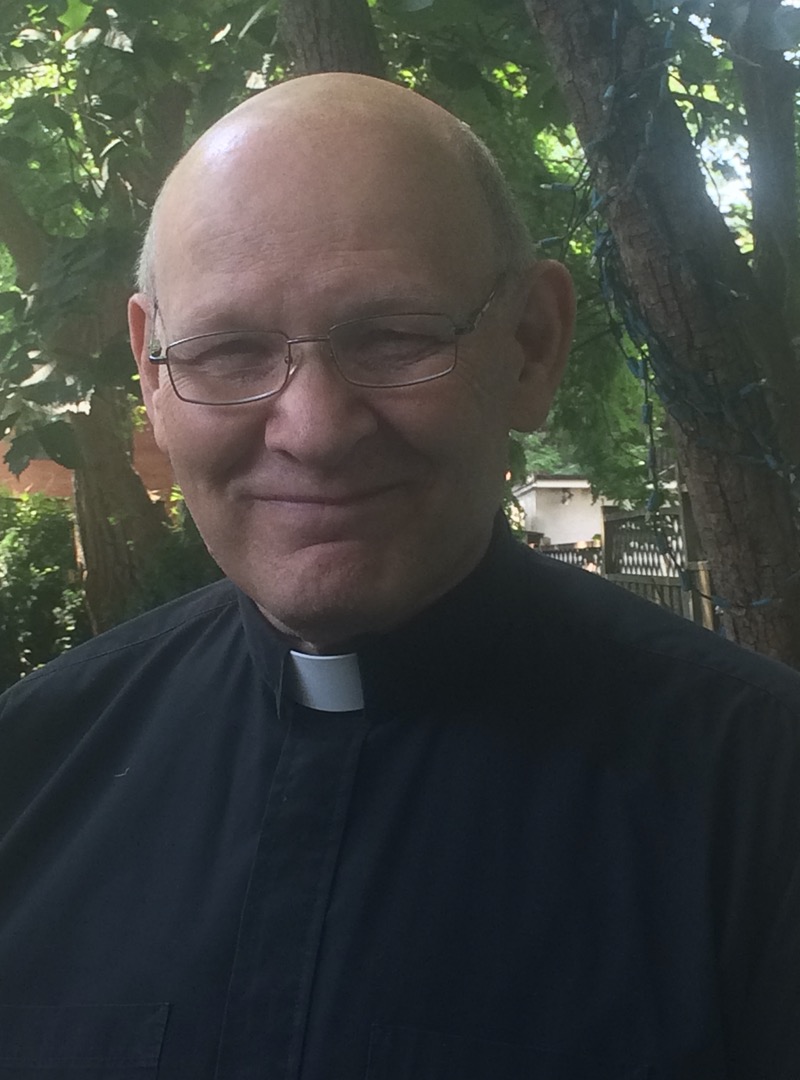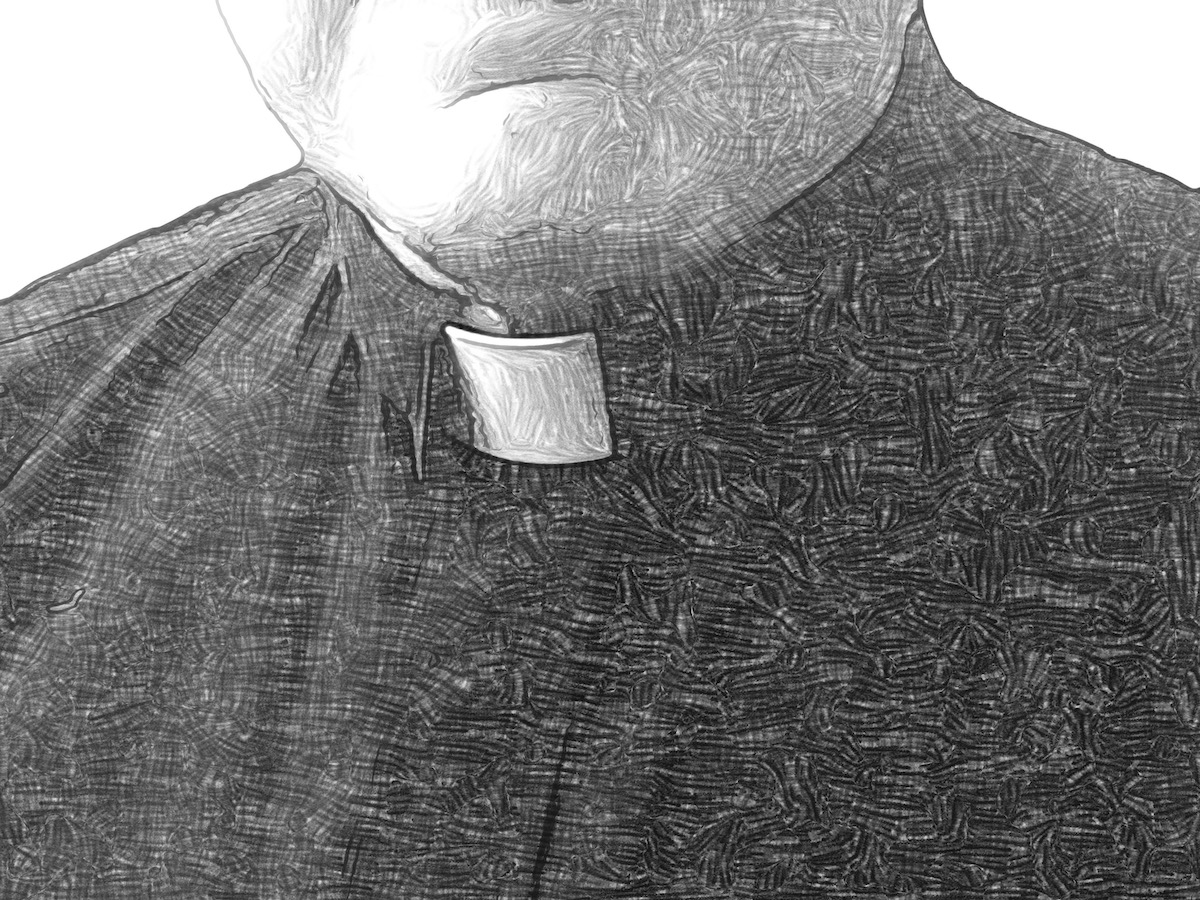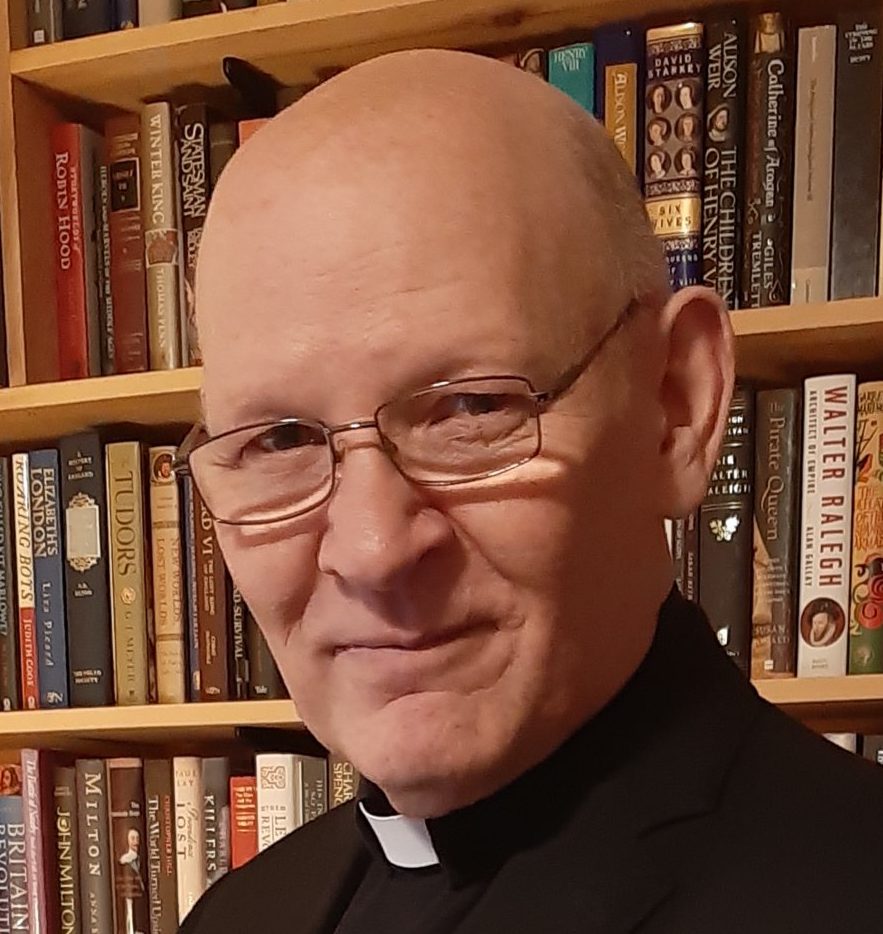I was ordained in the Anglican Church October 20th. It was the culmination of 5 years of consideration and work, three years of Masters of Divinity Degree (Trinity College – University of Toronto) and more reading, church work, and prayer , than I thought possible. But no amount of systematic theology, Greek, Hebrew, and moral philosophy can prepare you for wearing a clerical collar in public.
A lot of clergy seldom do it any more, and in parts of the world, especially Ireland with its history of abuse and scandal, it can even be dangerous. It’s no use trying to explain denominational differences to an enraged anti-Catholic. “I am Cinna the poet, I am Cinna the poet! I’m not Cinna the conspirator” didn’t cut it in Shakespeare’s Julius Caesar and won’t help now.
Beyond the risk of assault, there is the problem of alienation. The job of a cleric is to communicate the Gospel, bring people closer to God, or at least not get in the way of their search. The collar can be an obstacle. But I made an oath to myself that from my ordination day onwards I would take the plunge and proclaim what I was.
Representation is itself an issue. Get it wrong, lose your cool, be momentarily uncharitable, and it’s not you but the entire church that has failed. That might be unfair but it’s entirely understandable; churches have a lot to answer for. So it’s a pretty weighty responsibility. But then I didn’t embark on this thinking for a moment that it would be easy.
What becomes obvious after a few days of aching and self-consciousness is that the collar often matters far more to you than to them. In other words, I was far more aware of what I was wearing than were the people around me. That feeling diminishes, though doesn’t completely evaporate, fairly quickly. Then come the reminders. Because I used to be on television quite a lot, there’s still some public recognition. “Aren’t you Michael Coren” asks a guy in Starbucks, looking at my shirt. “Last time I checked” I reply. I can see him prepare to ask something, surely about the weird way in which I’m dressed, but he then just smiles and leaves.
On Toronto’s TTC I was approached by an atheist who wanted me to argue him into faith. “Go on, convince me, convince me” he said rather aggressively. There were enough passengers for it all to be slightly embarrassing. I said that I wouldn’t argue with him, and he responded with a “See, you can’t”. I said that I might or might not be able to, but it was all too important for that — that it wasn’t a game, and that he had to first genuinely want answers. He got off the train at the next stop, and while most people continued to pretend they couldn’t hear, one woman in a hijab smiled broadly at me and gave a thumbs up gesture. There’s ecumenism for you.
But negativity is, incredibly and surprising, rare. There’s often apathy, but when there is acknowledgement it’s genuinely disarmingly supportive. A young woman in an empty carriage sat next to me and wanted to tell me about the death of a close friend. What fascinated me was that she had no interest in religion, no desire to attend church, but thought she could speak to me and trusted that I would listen. I was so shaken, so moved, by it all that after she left I just sat there and thought I would cry.
An older man, clearly not in great shape, beckoned to me and asked me to sit with him. He told me of his mental health, his struggles, and how he played music on the street for money, but often had to move location because panhandlers apparently discover where talented buskers are and then stand next to them all day. “It puts people off” he said. That’s a common phenomenon apparently. Who Knew?
In the middle of all this I spent two weeks in Britain. I was sitting in London’s Groucho Club with an old and dear friend, and she whispered, “Did you see those two girls opposite?” Apparently one of them had exclaimed “Oh God”, then put a hand to her lips in shame because I was a few feet away. The Groucho is about as distant from religiosity as one could find.
One particular constituency of support came from a group that otherwise would not have made me feel enormously comfortable. Drunk men in their 20’s and 30’s on a Friday and Saturday night. I received a lot of “Bless ya Father”, “Wotcher Father” and on one occasion a “Come with us for a drink Father”. No, I replied. Thanks, but you have to find your own way. Seriously, I really did say that. Rather proud of that one.
I told a priest friend in England about this phenomenon and he said that young men who have served in the armed forces, or been to prison, have a particular regard for clergy, who in those places are often the only conduit for humanity and gentleness that they ever encounter.
The temptation is to see all of this as evidence of a sweeping need and desire for spiritual sustenance. While that’s too glib, it’s not totally without foundation. I’ve long believed that it’s not faith that’s irrelevant, but the way it’s packaged and presented. I also know that loneliness, perhaps the great darkness of modern western society, is also part of the explanation. People feel isolated, especially and ironically in crowded cities. Starting a conversation with a stranger is considered socially unacceptable, but talking to an idiot in a dog collar is fine.
A late bus on an early December snowy evening. A young man with a backpack and holding a coffee cup walks past me towards the exit, and as he does so pushes a folded piece of paper into my hand. I’m half asleep and a bit shocked. He’s gone by the time I read it. “I know who you are, and I used to hate what you wrote. I know about the change too, but didn’t know this priest thing had happened to you. I’m not Christian, not religious, but I’m glad it did. Good Luck Michael”.
That’s about the best Christmas gift I could ever receive, and his scribbled note is now stuck to a mirror in my bedroom. I see it every single morning as I put on my clerical collar and begin the day.
 The Reverend Michael Coren is a deacon in the Diocese of Niagara and a regular contributor to the Niagara Anglican. This article first appeared in Macleans magazine.
The Reverend Michael Coren is a deacon in the Diocese of Niagara and a regular contributor to the Niagara Anglican. This article first appeared in Macleans magazine.


Viewing 2026 Through a Different Lens